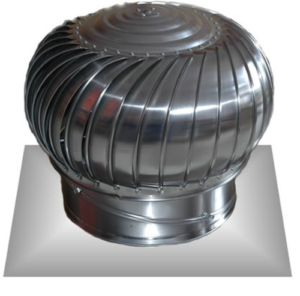HVAC mean Heating Ventilation And Air-Conditioning.
Heating : The temperature outside is less than inside. Heat is energy transferred between substances or systems due to a temperature difference between them, according to Energy Education. As a form of energy, heat is conserved, i.e., it cannot be created or destroyed. It can, however, be transferred from one place to another. Heat can also be converted to and from other forms of energy. For example, a steam turbine can convert heat to kinetic energy to run a generator that converts kinetic energy to electrical energy. A light bulb can convert this electrical energy to electromagnetic radiation (light), which, when absorbed by a surface, is converted back into heat.
Ventilation : Sending the foul air out from the space and/or suppling the fresh air in to the space. Or Ventilation refers to the process of removal of stale inside air from a building, room or a confined space and replacing it with natural fresh air. Proper ventilation is essential for breathing, as the oxygen level is gradually reduced in an inhabited area, thus removal or dilution of air pollutants, smoke and odor, controlling humidity and temperature within the space being used is required. Ventilation is also required where there are engines and machines present to allow a supply of oxygen, which is required for combustion, cooling, humidity control and smoke or vapor removal.
Air-Condition : It mean a process by which the temperature, humidity, flow and purify of the air is controlled simultaneously to get the required conditions. Or is that process used to create and maintain certain temperature, relative humidity and air purity conditions in indoor spaces. This process is typically applied to maintain a level of personal comfort. It’s also used in industrial applications to ensure correct operation of equipment or machinery that need to operate in specific environmental conditions or alternatively to be able to carry out certain industrial processes, such as welding, which produce considerable amounts of heat that needs to be disposed of in some manner. An air-conditioning system must be effective regardless of outside climatic conditions and involves control over four fundamental variables: air temperature, humidity, movement and quality. The distinction between industrial and personal comfort applications is not always clear cut. Industrial air-conditioning usually requires better precision as regards temperature and humidity control. Some application also demand a high degree of filtering and removal of contaminants. Comfort air-conditioning on the other hand, as well as needing to satisfy personal temperature-humidity requirements, also involves other fields such as architectural design, weather forecasting, energy consumption and sound emissions to recreate the ideal conditions for human psychophysiological well-being. The main process underlying air-conditioning is the exchange of heat and water vapor between the indoor and outdoor environments and the people inside the air-conditioned space.



